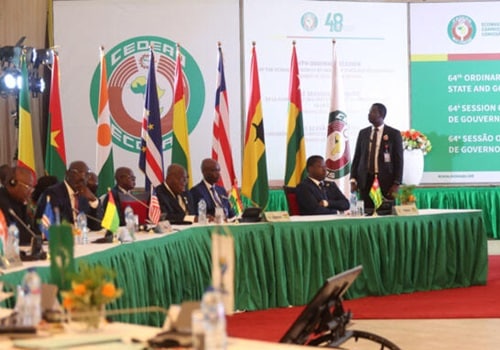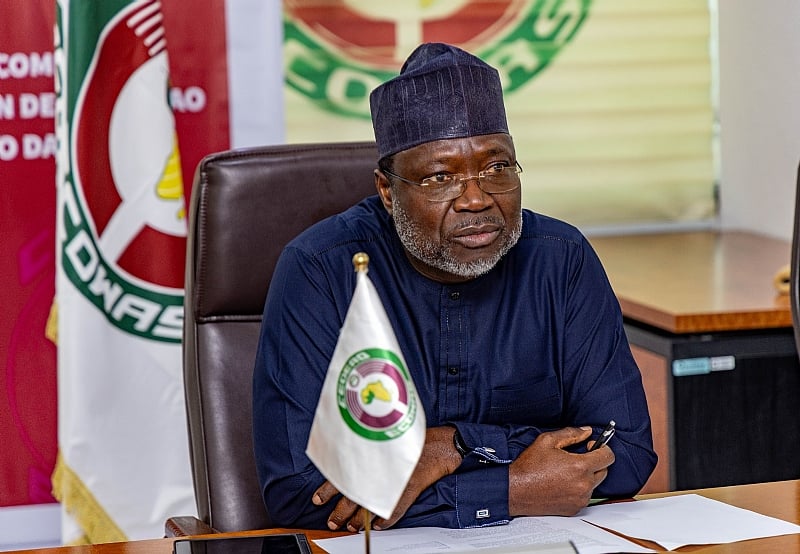ECOWAS Set To Tackle Import Levy Dispute With AES

ECOWAS Prepares for Crucial Meeting Amid Trade Tensions
Here's the scoop: The Economic Community of West African States (ECOWAS) is gearing up for an extraordinary meeting later this month. The focus? A controversial 0.5 percent import levy imposed by the Alliance of Sahel States (AES) on goods from ECOWAS member nations. It's a move that has raised eyebrows and sparked concern across the region. The meeting is scheduled for April 22, 2025, where leaders will gather to address this new tariff and other pressing regional matters.
Joel Ahofodji, the Head of Communication for the ECOWAS Commission, confirmed the news to Punch on Wednesday. When asked whether ECOWAS might retaliate against the AES for the levy, Ahofodji kept it straightforward, saying, “ECOWAS will have an Extraordinary Council on the 22nd of April. All these issues will be discussed.” Clearly, the stage is set for a critical conversation.
Understanding the AES's Move
Let me break it down for you. The AES, made up of Mali, Niger, and Burkina Faso—countries currently under military junta leadership—introduced this 0.5 percent import duty. According to reports from Naija News, the move aims to boost revenue for the new alliance. This decision comes just a few months after these countries decided to exit ECOWAS in January 2025, a choice that has already drawn significant attention and scrutiny.
Read also:Celebrity Power How Stars Are Transforming The World Of Crypto Gambling
The levy, which became effective on March 28, applies to all goods entering Mali, Niger, and Burkina Faso, except for humanitarian aid. This development directly challenges ECOWAS's long-standing commitment to the free movement of goods among its member states, including those in the AES, even after their official departure from the regional bloc.
Impact on Regional Trade
This import levy throws a wrench into the works of the ECOWAS Trade Liberalization Scheme (ETLS), which has long championed duty-free and quota-free movement of goods and services within the region. The AES's action introduces a new trade barrier, raising concerns about potential disruptions to supply chains, price hikes, and increased trade costs. This barrier could weaken the regional bloc's free trade framework, which has traditionally sought to eliminate such obstacles.
ECOWAS now faces the challenge of addressing the impact of the AES's actions while finding a resolution that balances the interests of all its members. It's a delicate balancing act, but one that's crucial for maintaining regional stability and cooperation.
A History of Strained Relations
The relationship between ECOWAS and the AES countries hasn't exactly been smooth sailing. Since the AES countries decided to leave the bloc in early 2024, tensions have been running high. This decision followed months of disagreements, with the junta governments of Mali, Niger, and Burkina Faso accusing ECOWAS of failing to adequately support their fight against terrorism and imposing sanctions that hurt their populations.
Although the sanctions were eventually lifted, the three countries have stuck to their decision to exit the bloc. In response, ECOWAS has issued guidelines aimed at minimizing disruptions for businesses and citizens, including provisions for duty-free trade, visa-free movement, and residence. It's a clear effort to maintain some level of cooperation, even in the face of formal separation.
Reopening the Door for Dialogue
ECOWAS hasn't closed the door on the possibility of the AES countries rejoining the bloc in the future. In fact, the regional body has expressed a willingness to reopen discussions should the AES countries decide to return. It's a gesture of openness that underscores ECOWAS's commitment to regional unity and collaboration.
Read also:Meet The Worlds Richest Actresses Our Top 35 List
In a related development, Niger has officially withdrawn from the Multinational Joint Task Force (MNJTF), a regional military force combating Islamist insurgency in the Lake Chad region. The MNJTF, which includes forces from Nigeria, Chad, and Cameroon, has been operational since 2015. Niger's decision adds another layer of complexity to the already tense situation in the region.
National Security Adviser Ribadu Urges Nigerians To Unite Against Threats
President Tinubu's Decision: Why A State Of Emergency Was Declared In Rivers State
PDP Fires Back At Accusations: Rivers State Drama Heats Up


